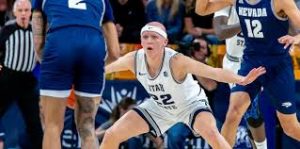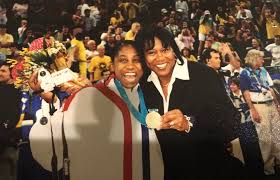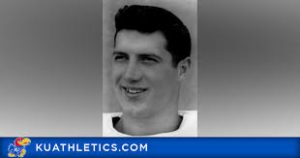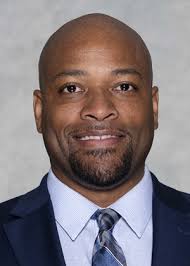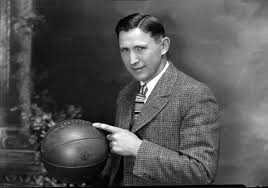CLICK HERE for all of Hoops HD’s Continued and Extensive Preseason Content
We hope you are ready for a season unlike any other: testing, distancing, and bubbles, oh my! Nobody knows exactly what is going to happen, when it is going to happen, or whether anything actually will happen…but in the meantime we will try to restore some order with season previews featuring the best players/coaches/administrators in the country. We continue our coverage with Utah State JR SG Brock Miller. He served a mission before college, missed most of his freshman year with a foot injury, and got married last year. HoopsHD’s Jon Teitel got to chat with Brock about winning the 2020 MWC tourney and his expectations for this year.
You served a 2-year LDS mission in Buenos Aires before going to college: how did you like Argentina, and how important is your faith in you life? It was a great experience for me to learn the culture and help out any way that I could. My faith is the centerpiece of my life, along with my family.
You play for Coach Craig Smith: what makes him such a good coach, and what is the most important thing that you have learned from him so far? He is an amazing coach due to his energy and how he knows his players. What he emphasizes the most is “NBA”: Next Best Action. He knows that mistakes will happen but teaches us to move onto the next play. “Find a way” is another big quote he uses as our leader/teacher/coach. His consistency has allowed us to be consistent as a team, especially when getting to March so that we can be our best.
You played in each of the 1st 5 games in 2017 before missing the rest of the year due to a foot injury: how bad was the injury, and how were you able to get back onto the court? My last game was at the PK 80 tourney against Portland State. I knew that something was up because my foot had been throbbing a few days earlier but I could not even walk after that last game. The doctor found a fracture in my foot and I was pretty devastated, but I really worked on my body/my game as much as I could while in a boot. It ended up working out well because I was able to get that year back.
In the 2019 NCAA tourney you scored a team-high 13 PTS/3-6 3PM in a loss to Washington: what did you learn from that game about what it takes to win games in March? It takes a team that stays together, is fundamentally sound, and just finds a way. We played a good Washington team and struggled little bit but it was still nice to get a taste of March Madness. You have to come ready to play and it all starts in the preseason and being focused on getting better every day and never being satisfied. Our defense is what has carried us a lot in the past and will be a big key for us again this year.
You got married in 2019: what impact has your wife Bailey had on you either on or off the court? She has had a great impact on me: she is very supportive and pushes me to be better. She played college volleyball and knows the time/dedication involved in playing your best as an athlete. She has been a huge blessing to me and our marriage is a very positive thing. Her dad actually played here in the 1980s!
In the 2020 MWC tourney title game you scored 2 PTS and Sam Merrill made a 3-PT shot with 2 seconds left in a 3-PT win over top-seeded San Diego State: did you think that Sam’s shot was going in, and where does it rank among the most clutch shots that you have ever seen? That has to be the most clutch shot I have ever seen…but I knew that it was going in because I have seen him make those kinds of shots since high school. He loves the rhythm dribble to his left and I think that he will do great things at the next level.
A few days later you learned that the NCAA tourney was canceled due to the coronavirus: what was your reaction when you 1st heard the news, and how do you feel about playing this year despite having an autoimmune disease? When we 1st heard the news we discussed playing without fans and we were okay with that, even though it is much cooler when you have fans in the stands. It was very devastating when we learned that the season was over because we thought that we had the experience to make a nice run. 1 of the side effects of my disease is a lower immune system but we are keeping ourselves safe and testing and doing the right things. I just take my vitamins and stay healthy: I want to play basketball so I will do whatever is within my control to make it happen.
Your teammate Neemias Queta was 2019 conference ROY/DPOY but missed 9 games last year while recovering from an injury: what makes him such a good player, and how crucial is he going to be to your team’s success this year? He is very crucial to our success. He is a great player who has an impact on both the offensive/defensive ends of the court. As a wing defender it is nice to know that he has my back if the guy I am guarding beats me to the basket. He was really good on offense 2 years ago but has gotten even better by working on his jump shot and he has great touch around the rim. We are excited to have him back because he is phenomenal.
Your older brothers Brandon/Corbin and father Brett all played college basketball: who is the best athlete in the family? It depends on who you ask: if you ask me I will say me and if you ask the others they will say themselves! It is pretty cool to have a sporty family: we have a lot of basketball in our blood.
What are your goals for this season, and what are your expectations for this season? The #1 goal is to win another MWC title, and then make a run to March Madness. We got cheated last year so we will do whatever it takes to win. A lot of teams in our conference will be coming for us so we just need to be locked in every day and keep our 8 freshman on the same page so that we can mesh with them.

